I just finished this movie the over the weekend. Initially, it made me fall in love with the action and music, then it engaged my intellect in a way that made me feel really refreshed. It ended with an “emotional gut punch” like the best short sci-fi stories out there, the comparison with which makes me smile since the film is two and a half hours long. I’d never heard of this film – probably because it got lost in the 2020 pandemic chaos, the year it was released – until my basics of directing class-assigned documentary on Christopher Nolan last November. I was impressed that he came up with another original story with a weird concept, and perhaps subconsciously, I was pleased to see a fellow POC as the main character.
Here’s the summary (it’s gonna be a bit hard to write :P) : Tenet is about a CIA operative (John David Washington – the son of Denzel Washington, for reference) who gets caught up in a mission to stop a Russian oligarch (Kenneth Branagh) from ending the world – because weapons from the future are turning up in the present. A select group of people can go “reverse” in time and the whole world shows up in reverse….
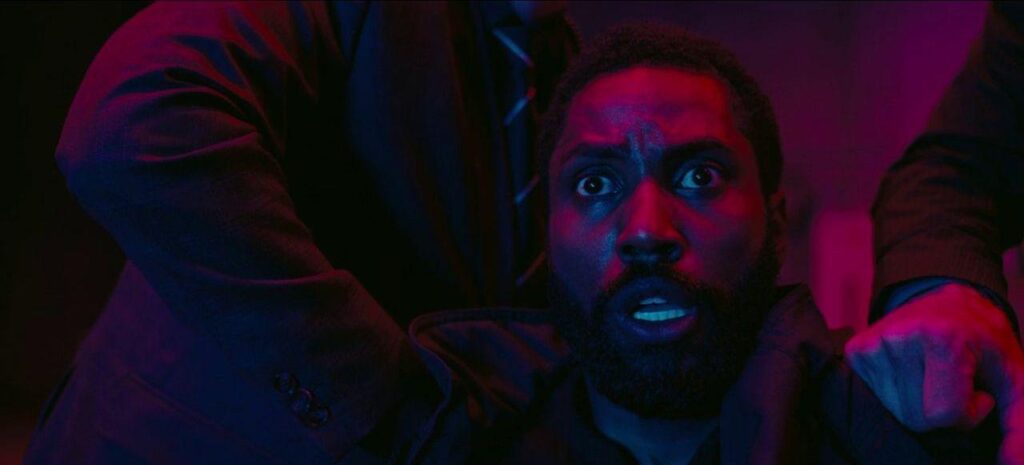
Bruh, since this portion is spoilered, I actually didn’t have to write the summary – but it’s there for you anyways as a refresher 😂 (or, if you’re ignoring the spoilers and barging right ahead, like my mom who reads movie summaries before she watches them, this is for you too XD)
This was one of the mind-bending, sci-fi movies I wanted to watch from Nolan’s filmography. Last December, I’d seen someone on Reddit in Britain sharing their TV schedule on Christmas Eve with Tenet on it…
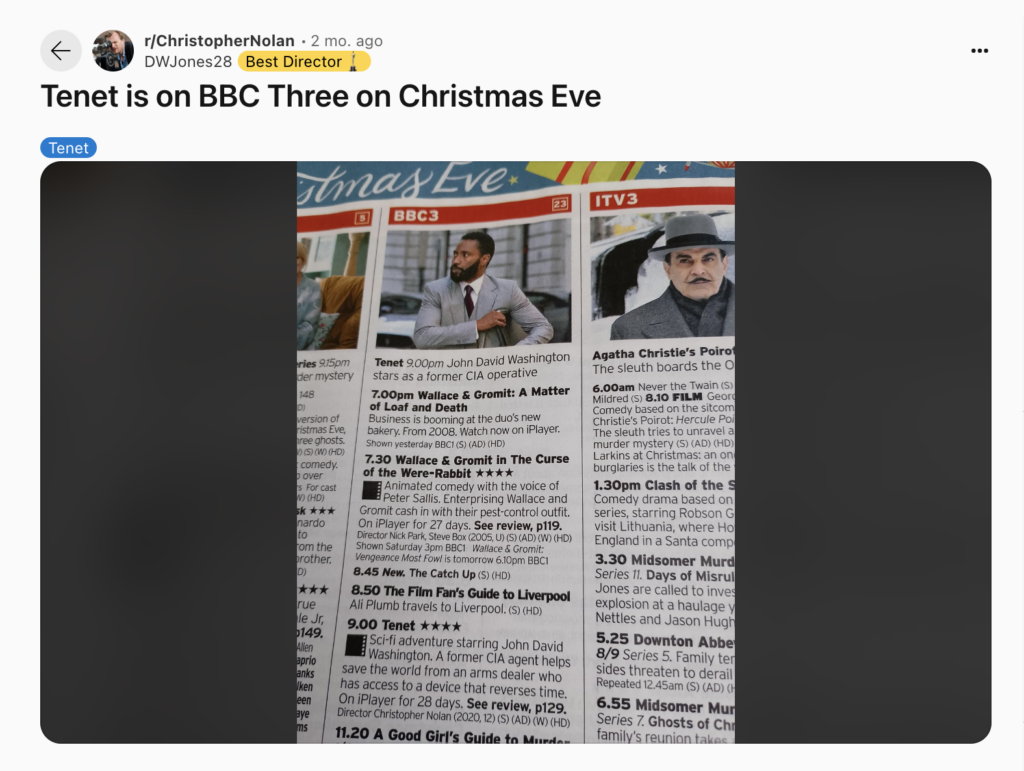
…and I was in Ras al-Khaimah in mid-December, about to sleep with the TV on in the hotel – and there was a commercial showing upcoming films and I saw a guy with a mask:

I was like, “THEY’RE SHOWING TENET HERE TOO!!!” I was so hyped. It would be on that week’s Friday at 9PM, and we got back to our hotel in Sharjah (we moved through a lot of emirates) before 12AM that day, and I went on the MBC channel, and lo and behold – it was still there. It was close to the end, though, and I couldn’t make heads or tails of it, but it was something pretty historic for me – watching even a part of this obscure Nolan film on TV in the Middle East (and we rarely watch cable TV anymore). Later on, it proved fascinating and pretty poetic to have watched the ending of this palindromic film first… (tenet is tenet backwards :p)
Here are my notes from right after I finished the whole movie, straight from my movie journal (with a bit more explanations when needed):
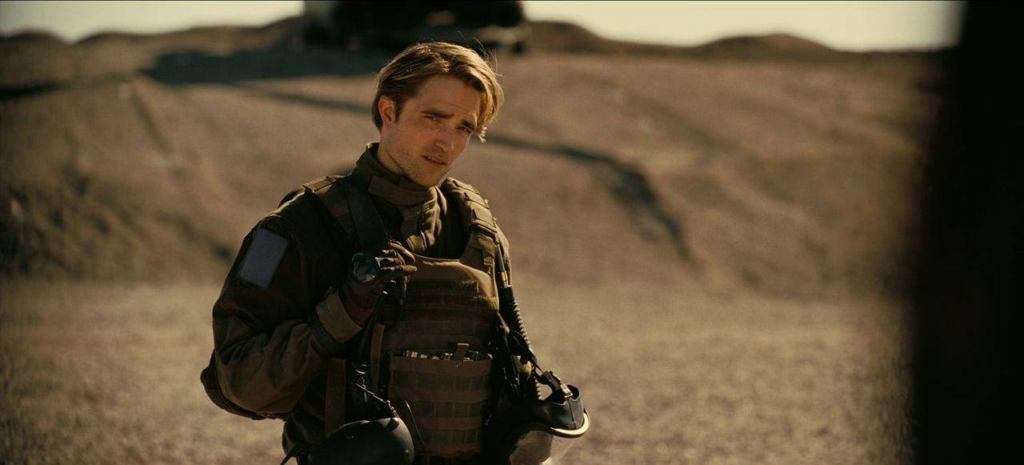
Neil died T_T WAAAAH, devastating, especially with his last conversation with the Protagonist. Friendship beginning for P., friendship and life ending for Neil. The emotional gut-punch of a sci-fi short story lives in this. WAAH.
It’s funny and fitting that the ending of this movie is what I watched first – in Sharjah – so I knew some things about it. And I kind of got spoiled about Neil’s death when I Youtube-searched about people talking backwards in the film for my brother today. But now I just feel really sad ’cause Neil died – with the fact that, hey, P. is saying goodbye to him now, but he’ll meet Neil again in the future and have the chance to get to know him for real. But Neil eventually dies and P. knows how it happened, though in the moment it happened, P. had no idea who the hell it was that saved his life. Kinda like how P. and Kat saw their inverted selves without knowing it. Deja vu.
I thought the Freeport Zone part was cool because I had just recently seen the massive Dubai Airport Free Zone, which operates in the same vein as the one in the film. I learned about how it works last December – my Indian-Filipino friends’ dad was driving us to the mall there in Dubai, and we passed by an airport with a lot of business buildings. I asked in general what it was, and their Indian dad explained that the place was exempt from customs and some taxes, and different countries and companies conduct their import/export businesses there (about 2,000 businesses operate there right now).

He said it helped the economy of Dubai through the years (especially throughout COVID, iirc). To see a freeport being explained in a Nolan film was a good callback to that memory in Dubai and adds more realism and relatability to the film (plus a nod to Nolan’s family relationship with airports :D).
The scenes of the Protagonist stepping out of the turnstile machine for the first time as an inverted person (the ones where he reverse-steps over a puddle and the seagulls fly backwards) felt so much like (reverse) culture shock. Damn! Reverse… the world you once knew, but in reverse. The wind blowing against your back (or something), you step on a puddle and it reacts in the reverse – what you thought was familiar now behaves in an unusual way. A very apt metaphor.
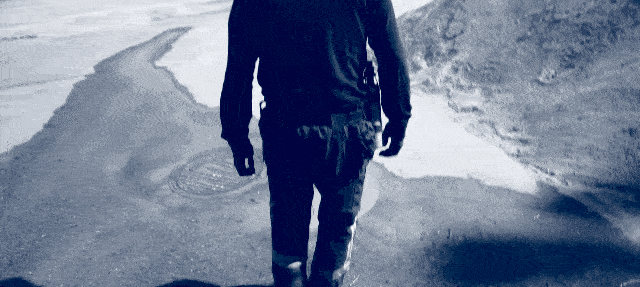
I remember going back home to the Philippines one time as a teenager – I had just arrived a few days before and I was sitting at a Mang Inasal restaurant, waiting for our food, and – I felt so overwhelmed listening to everyone around me, because I could suddenly understand what everyone was saying because I could understand the language. Information overload.
It’s not as swak a metaphor for what happened in Tenet, but the feeling of disorientation and grappling for normalcy that we feel while watching the Protagonist in an inverted world was really potent to watch. Reading into Nolan’s life as a child of a British father and American mother, who lived in both of his parents’ countries, it’s very plausible that he experienced something like this, for example, when moving back to the UK. (Tangent: I read that he watched Star Wars in Ohio with his grandma as a kid, and when he went back to London, his classmates had no idea what he was raving on about – because Star Wars hadn’t premiered in the UK yet 😅)

Before I saw the film, the clips of reversals were stuck in my head – the visuals of John David Washington’s character doing things in reverse (catching a bullet, walking and seeing the natural world moving backwards). I remembered them while watching The Chosen episode “Clean, Part 2” where Jesus raises Jairus’ daughter back from the dead.
I was also listening to a sermon about Jesus’ resurrection earlier at church that day, and I had a fresh, more personal understanding of how Jesus conquers death, since I was also pondering how our fascination with time travel in movies and science is rooted in our desire to escape grief and the pain of death – which Jesus lovingly saves us from, giving us new life, His life. So, when I saw the scene in The Chosen of Jesus raising the girl (covered in a white sheet while her parents – including the faith-filled Jairus – stand on the side, already weeping and mourning her), I thought, “Jesus reverses death.” – while thinking of the visual metaphor of Tenet’s reversals. (Later on, I remembered that John Mark Macmillan has a song called “Death in Reverse” – I listened to that today, it’s very beautiful.)
After I watched Tenet, besides the intellectual exercises I had fun unravelling from it, I also thought of its theme of breath. I often reflect on films during prayer, and I recalled that God gives breath – the power, He is the life-giving source. In the documentary, it was mentioned that the film’s composer, Ludwig Göransson, actually recorded Nolan breathing, which he used for the character Sator’s leitmotif.
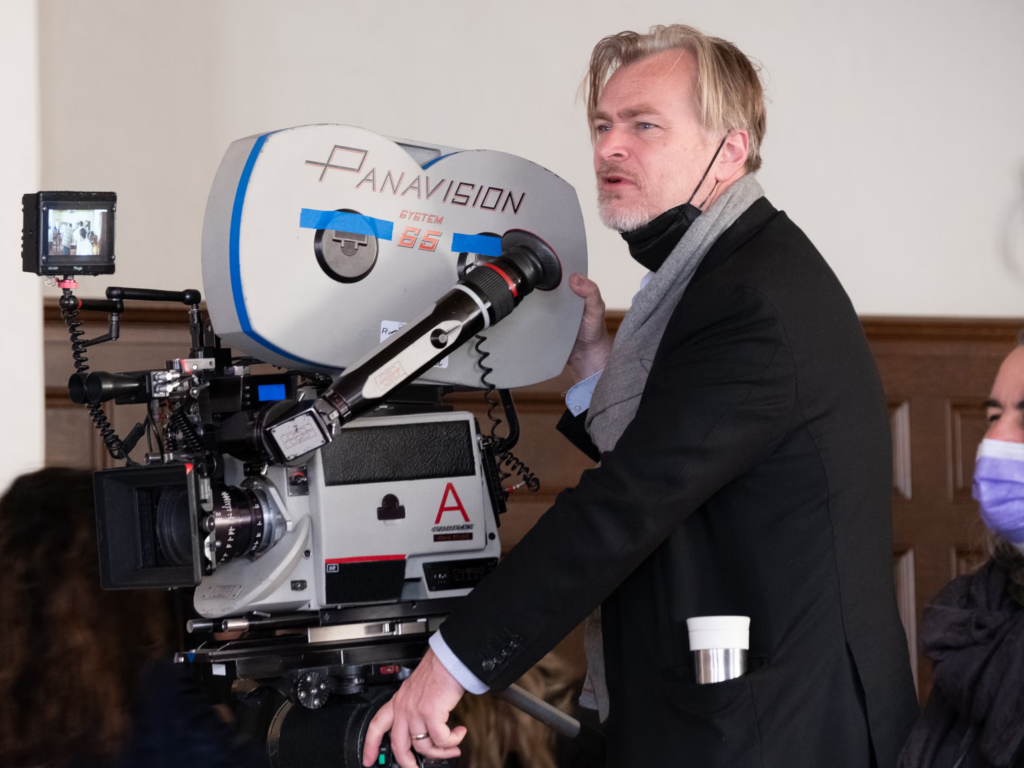
Remembering that, I thought it was poetic, learning that the director literally gave his breath for that film, breathing life into it, like a fingerprint in the film, something organic. It’s like God giving life to us as His artwork. Without Him breathing into us we would not exist.
(I wrote this last section on a subreddit where Christians discuss books and films, and someone replied to me with this: “The resurrection is central to the Christian faith, but because it is spoken about quite often, I often wonder if it has lost its wonder. It truly is a remarkable miracle – Jesus is risen! While the Church accepts this miracle as true, do we marvel at it?” Films like Tenet help refresh me and help me meditate on the life-giving tenets of our faith more (sorry, I couldn’t help myself 😅)…
I love P.’s compassion for uninvolved people – I don’t want to use the word “innocent” – preventing them from being collateral damage. I really hated Ken Branagh’s character so bad when he violently abused his wife – it was horror. But I skipped the scene where Kat killed him and he violently hit his head on the boat – I already saw it once in Sharjah and I didn’t want to relive it. It hurt me that the domestic abuse was depicted and humans are so sinful to do that kind of thing.

The whole future-people-timeline thing reminded me of Arrival and activated my synesthesia colouring of the future.
I liked how India was present (reminds me so much of Nepal and our heavy consumption of Bollywood films) & Priya’s character was compelling and formidable.
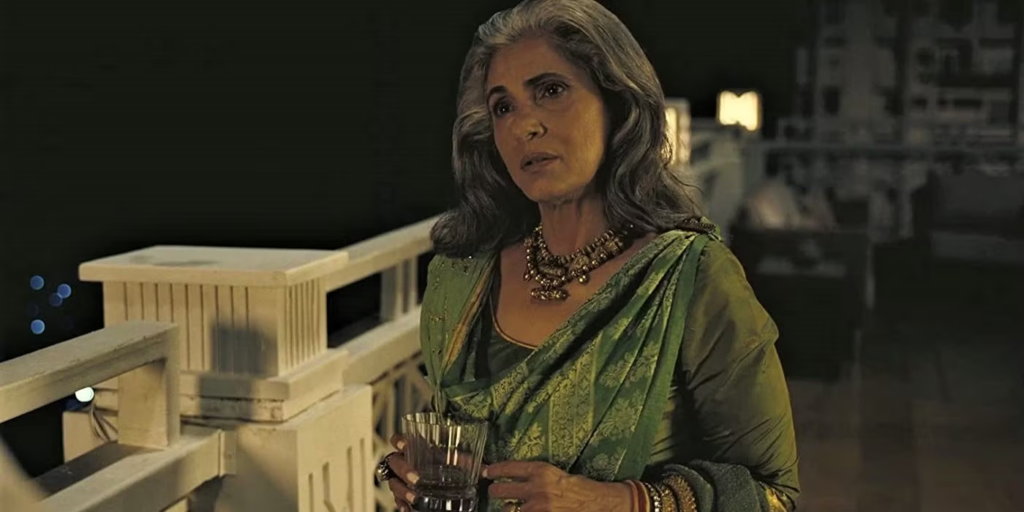
I also liked seeing Jeremy Theobald there (the main guy from Following, Nolan’s first film) – his character with a stiff personality was fun; I loved hearing his rich, dulcet voice again. The “British snobbery” line with Michael Caine XD that’s a self-referential line by Nolan HAHA kind of like if a Filipino made a self-deprecating joke about a stereotype about us. Or sarcastic/sardonic? idk lol.

Well, Tenet wasn’t high on my to-watch Nolan films (I wanted to see Dunkirk with Jivan first, though I’ve always been curious about it because of Reddit), but it resonated with me much more than Insomnia. From the start, I was riveted by the action, the music, and the mystery, the suspense. The opera hall was familiar to me & I knew it was so because I moved to Armenia — and I knew from the documentary I watched for homework that it was going to be set somewhere in post-Soviet – another familiarity – Tallinn. The familiarity extended to the airports and Indian culture.


I also loved that it made me think a lot – I’m glad I could rewind and pause the film on Netflix to understand things (as opposed to watching in the theatre with no subtitles! the drawback of IMAX lol), and I can finally go on the Tenet subreddit :p
But what’s gonna stay with me for now is the visual metaphors of reversal and their connection to my being a third culture kid… More on that later…
(on the margins of my notebook:
OPPENHEIMER MENTIONED!
Reverse entropy . What I want from God — clean the chaos of my life)
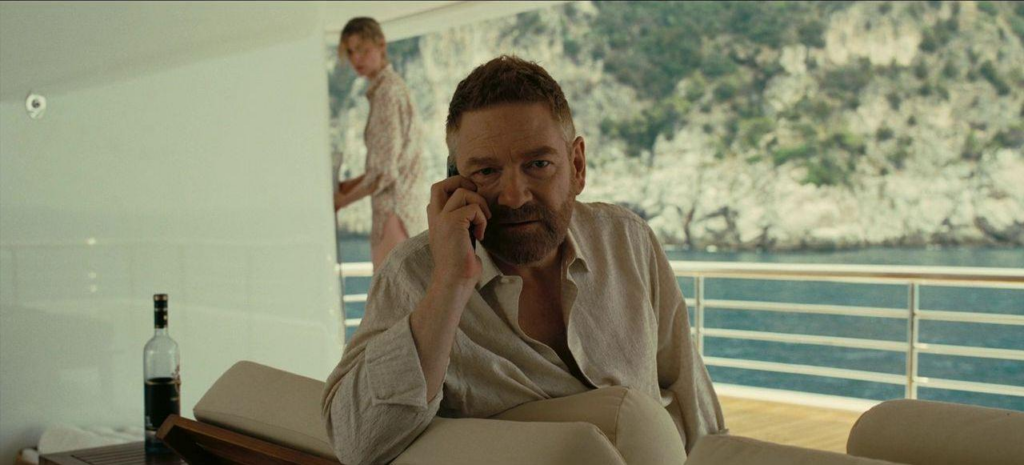
Other notes from after:
- Ken’s Russian accent – my Russian friends from Moscow and Karelia have different accents than his, but I felt Ken’s was convincing enough.
- Backmasking… the backwards dialogue sounds like the backmasking on Petra’s tracks.
(BRUH it sounds like Tenet)
- Looking back at it, the film feels like one huge sci-fi short story, which amazes me. Since last year, I’ve been reading issues of Asimov, the 2016 Year’s Best of Sci-fi volume, Mysterion Magazine (an online collection of Christian-themed sci-fi and fantasy short stories and more), and Philip K. Dick’s short story anthology – I originally did it as preparation for a sci-fi novel I’m writing – and now I’ve become familiar with the feel of the format.
- It’s crazy how Tenet film is 2 hours and 30 minutes long but to me it feels just like a sci-fi short story. I guess because it shares these elements of the sci-fi short story genre: it starts in media res, the characters don’t have a big backstory, it has a mind-blowing science element with “wow”-inducing implications, and it ends with a jarring emotional moment (or “emotional gut punch,” as the folks in Writing Excuses say) that leaves you thinking long after you’ve finished the story.
- More specifically, Tenet is like a Philip K. Dick short story. For reference,, PKD was the writer of the novel “Do Androids Dream of Electric Sheep?” (where Blade Runner was adapted from), and short stories from which the films Total Recall, Minority Report, and A Scanner Darkly. In PKD’s stories, you don’t understand everything but you somehow (somehow!) get the emotional heart of it – just like in Tenet. And PKD also often uses time and identity as themes in his stories much like Nolan.
- Why don’t I have an issue with not understanding many things about it? I guess because I latched onto the emotional core of the film – Kat is an abused wife who just wants to be free to be with her son, P is an agent with no background who’s also compassionate and wants to do his job, and Neil becomes his friend, which hurts because he dies in the end – although P still has a chance to know him in the future for sure, it’s just that this version of Neil he’s talking to is going to die. And their last conversation is so poetic that I understood it as something like the ending of a sci-fi short story (even if I don’t fully get the mechanics of what they discussed).
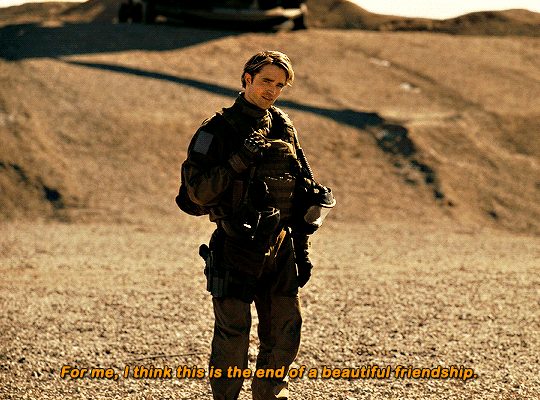
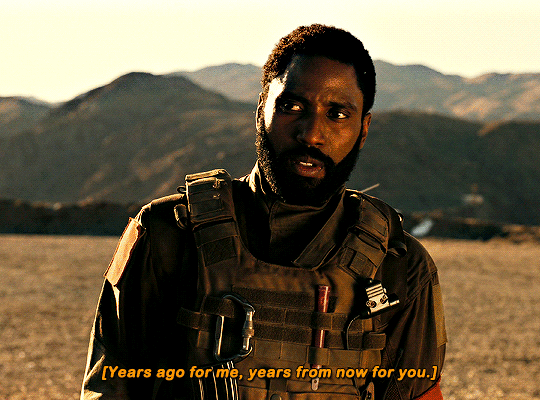
😭😭😭
Well, here’s to an abrupt ending of this long post. Why, oh why do I keep obsessing over these posts… I hope you enjoyed it though, and let me know what your thoughts are in the comments! If you’ve seen Tenet, what were the most challenging things about it for you, and what did you like about it?
We live in a twilight world…
